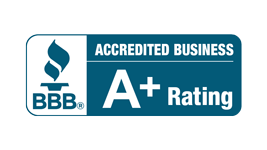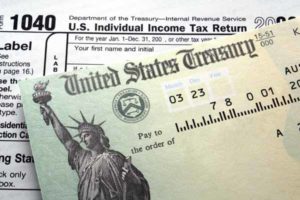Help For Your Situation
Bankruptcy Mistakes You Can Avoid
Common Bankruptcy Pitfalls to Steer Clear Of
You already have a serious problem. You might think it couldn’t possibly get worse. Here are some common mistakes people make that DO make their lives worse.
Before filing bankruptcy, most of the mistakes that I see people make are understandable, totally legal, and entirely avoidable.
They think these things make sense, and most people have no idea that they are creating serious problems which could have been avoided if they took 5 minutes to read this warning.
The number one most dangerous mistake to avoid before filing bankruptcy is making preferential transfers. “What the heck is a preferential transfer?” you ask. This is “legalese” for paying money to, or for the benefit of, “insiders.”

Preferential Transfer Statute
If you pay one creditor more than $600 in the 90 days prior to bankruptcy, the trustee can make the creditor return it to the court. This rule is extended to ONE YEAR for “insiders” like friends and family members. And, there are other “lookback” periods, two, four, and even ten years!
Example: Joe became unemployed, and his family loaned him $1,000 to get him through a tough time. Then he/she receives a stimulus check or tax refund. He pays the family member back $1,000. Later, Joe decides that he needs to file Chapter 7 within the following year.
His bankruptcy trustee could sue the family member to get the $1,000 back.
How do you avoid this? Wait until AFTER filing the bankruptcy to pay the “insider” back.
It’s ok to owe friends and family, not ok to pay them back in the year before filing.
Are you in the financial danger zone?
A free consultation can answer your questions
If your looking for the best answers on how to carve a path to a better financial future, rebuild your credit, and stay out of the danger zone. Then contact Richard West Law Offices for a Free No-Obligation consultation.
Free ConsultationHelp For Your Situation
Bankruptcy is a difficult and stressful event in your life to go through. Here are some helpful resources that can guide you through considering your options.
Get Your Free Consultation And Review All Your Options
Start the bankruptcy recovery process now with a free consultation after completing our online evaluation form.
Useful Calculators
Here are two helpful calculators for managing your debt repayments and Chapter 13 commitments.

Don't Put Anything in Someone Else's Name to Avoid Claiming it in Bankruptcy
It is NOT a good idea to “get things out of your name” before you file a bankruptcy. This almost always causes serious problems.
In fact, transferring property out of your name prior to filing bankruptcy actually works against you. You cannot use your exemptions to protect the property you no longer own.
Example: I once had a client who was afraid he would lose his motorcycle if he filed bankruptcy. The motorcycle was worth $5000, and he owned it free and clear. To protect the motorcycle, he transferred it to his brother so that he wouldn’t have to claim it as property he owned in the bankruptcy.
What he didn’t understand was that we are required to disclose all transfers made in the two to four years prior to filing bankruptcy. By transferring the motorcycle, he lost the motorcycle to the trustee!
If he had simply left the motorcycle in his name, I could’ve easily protected it with his bankruptcy exemptions.
How do you avoid this? Don’t make any transfers at all if you think you might need to file bankruptcy in the next few years.
If you do need to make a transfer, consult a bankruptcy specialist BEFORE you make the transfer, since having the proper paperwork prepared could make the difference between a smooth transaction and a safe bankruptcy, or a disaster!
Don’t make any transfers at all if you think you might need to file bankruptcy in the next few years. If you do need to make a transfer, consult a bankruptcy specialist BEFORE you make the transfer, since having the proper paperwork prepared could make the difference between a smooth transaction, and a safe bankruptcy, and a disaster!
Taking Out Loans Prior to Filing Bankruptcy
Many people borrow money trying to avoid filing for bankruptcy. It’s very common. The timing of a loan related to the filing of a bankruptcy case can result in creditors suing you in your bankruptcy.

If a creditor sees a loan taken out shortly before you file bankruptcy, it looks like you intended to defraud the creditor – borrowing with the intent to discharge it in bankruptcy can get you sued. The court could order you to pay it back. You would get no discharge on that debt, or worse, your entire case could be thrown out.
Example:
Julie’s hours were cut, and she started falling behind on her bills. So she took out a personal loan for $5,000 to “catch things up.” Shortly after she got the loan and paid some of her bills, she realized this was just a “Band-Aid” and made her situation worse, not better. So, she used the last remaining money left from the loan to file for bankruptcy. The creditor sued her, claiming that she never intended to pay that loan back when she took it out.
How do you avoid this? If you have Julie’s situation and have already borrowed the money, consult with a bankruptcy specialist. This is a situation that requires careful handling. Depending on your situation, it may be best to pay the remaining money back to the lender or perhaps delay filing your bankruptcy or a time.
Balance Transfers Prior to Filing Bankruptcy
Bankruptcy trustees usually ask if you have made any balance transfers or taken out any new loans in the 3 to 12 months before you file your bankruptcy. And, of course, they want to know what you did with the money.
If you have done this, the trustee may seek to recover balance transfers, and this could hold your case open for months.
How do you avoid this? Tell your bankruptcy attorney about any balance transfers or loans you have taken out in the year before you plan to file. This information is needed to properly time your bankruptcy and could avoid unnecessary delays in you getting your discharge and beginning your fresh start.
Losing Your Tax Refund in Bankruptcy
Your tax refund is a property right that must be listed in your bankruptcy. Often, though, you don’t know what your tax refund is going to be until you file your taxes. If your tax refund is partly earned income credit or additional child tax credit, these amounts are not part of your bankruptcy and can’t be taken by a trustee, no matter how large they are.
Most of the time, however, there is some portion of the tax refund that is not protected. There is no special protection for tax refunds in bankruptcy.
But, you have a “wildcard” exemption of $1,325 and a cash exemption of $500 which can be combined to protect your tax refund up to $2,000 ($4,000 for a married joint bankruptcy).
Sometimes, people think that if they file their bankruptcy before they receive their tax refund, then they don’t have anything to worry about.
This is a big mistake. Totally not true.
The right to receive a tax refund is something that accrues during the year as you pay your taxes. So, even though you’re not able to receive the tax refund until after you file your taxes, the “right to receive” the refund is property of your bankruptcy case.
Example: Jeff normally gets a large tax refund, around $8,000. He is single, no children, so none of his refund is protected. He files for bankruptcy at the end of September, ¾ of the way through the year. His attorney neglects to think about this, and Jeff thinks that because he won’t get the refund until the following year, his tax refund is safe.
Not so. In this example, by filing at the end of September, 75% of Jeff’s tax refund, $6,000, belongs to his bankruptcy trustee!
In October, the trustee sees the $8,000 refund from last year and instructs Jeff not to spend any of his refund when he files his taxes next year!
Because 75% of the refund was earned and owed to Jeff, he filed his case, which now belongs to his bankruptcy. He can only keep whatever his exemptions allow him of the $6,000 that belongs to the trustee.
How do you avoid this? Jeff could have started to fix this problem long before he filed his case. If he had first met with his bankruptcy attorney in June, he could have changed his withholding to stop the large refund from ever arising! This is totally legal. I tell my clients every time I see this coming.
This way, when the trustee sees the large refund and asks if you expect the same refund, you can say, “No. I changed my withholding, so I’ll only get a minimal refund now.” And this way, you have a chance to keep it all.
Spending Sprees Prior to Filing Bankruptcy
We have all seen stories about people who get into serious problems because they ran their credit cards up, maxed them all out, and even took out new ones prior to filing bankruptcy. These stories are sensational and make the news – but are actually extremely rare.
In fact, having handled over 20,000 clients in the last 35 years, I can tell you that I have yet to see a single case where someone intentionally runs up a lot of debt with the idea that they will discharge it in bankruptcy.
 Most of the time, just the opposite is true! I see people go to extraordinary lengths to try to pay their debts. They make personal sacrifices, go without medication, go without food, and drastically cut their expenses to make ends meet.
Most of the time, just the opposite is true! I see people go to extraordinary lengths to try to pay their debts. They make personal sacrifices, go without medication, go without food, and drastically cut their expenses to make ends meet.
Nevertheless, creditors are always on the lookout for any unusual spending pattern prior to filing bankruptcy. Also, bankruptcy cases are audited by the United States trustee’s office, and the United States trustees also look for unusual spending patterns prior to bankruptcy.
Example: Once I represented a man who had no insurance. Over the course of several years, he charged over $100,000 on his credit cards to pay for his wife’s care. After she passed away, he was forced to file bankruptcy. A large amount of spending was detected by the United States trustee’s office, who audited my client. The audit was very detailed and went on for several years.
Ultimately, we were able to establish that the spending was necessary under the circumstances in which my client could receive a discharge. So, if you have had to make unusual charges in the year prior to filing bankruptcy, we need to discuss this to get you through to your discharge safely. It’s important that we be ready for an audit. All of the facts need to be reviewed and properly disclosed.
How do you avoid this? Don’t max out credit cards before filing. Don’t charge non-essentials, like vacations, or hot tubs, or recreational vehicles before you file. Ask yourself if you would be comfortable telling the Federal Bankruptcy Judge that the purchases were necessary. If you’re not comfortable, perhaps you shouldn’t do it.
Borrowing Money from Credit Unions
Credit unions are great and easy to work with. Until they are not. And they’re not particularly bankruptcy-friendly. If you are having financial problems, and if you bank with a credit union, it may be tempting to apply for an unsecured loan or a credit card with the credit union.
You might also have a car loan with a credit union. Or a credit card.
If you think that your situation is serious enough that you may need to consider filing bankruptcy, you should avoid taking out loans with credit unions. The reason for this is that all credit unions cross-collateralize their loans.
This means that all of your debts, personal loans, and credit cards are tied to the collateral, frequently your car.
Example: You have a car loan with your credit union, and you need to borrow money. You go to the credit union and get what you think is an “unsecured loan.” If later you need to file bankruptcy, you will learn that your “unsecured loan” is not really unsecured. The unsecured loan is also secured by your car.
So, if you want to keep the car and are filing a Chapter 7, you will have to pay the unsecured loan as well as the car loan. In many cases, this means that it doesn’t make financial sense to keep the car because the total debt on the car loan and the unsecured loan will often exceed the value of the car.
Credit unions even add the credit card balances that you may have with them to the car loan as well.
Debts with credit unions create an unforeseen danger to people with financial difficulties. If you miss a payment on your credit card because of the cross-collateralization, you might find that your car gets repossessed.
How do you avoid this? Getting loans from credit unions before filing bankruptcy is a big mistake to avoid if you have any secured debts, like car loans, with that credit union.
Borrowing Money from Retirement Plans
Another big mistake that people make prior to filing bankruptcy is either taking distributions from their retirement plans or taking loans against their retirement plans to pay the debt. This is rarely a good idea.
In almost every situation, your retirement account is completely protected. 100% protected. Creditors can’t get to it, and neither can a bankruptcy trustee.
If you use your retirement to pay a debt, debt that would be discharged if you file bankruptcy, you are probably making a huge mistake.
Here’s why:
- When you take a distribution from your retirement account, you must pay taxes on it and will probably owe a penalty. So now you have created a new debt with the IRS.
- The money you take out of your retirement account makes your financial future less secure.
- The debts that you are paying with the money you take out of your retirement account are often dischargeable in bankruptcy. And there is no tax debt created by discharging debts in bankruptcy.
Your retirement should never be considered under normal circumstances as a source of funds to pay the debt.
Avoid Mistakes Before Filing for Bankruptcy
There are Lots of Ways to Screw up Filing for Bankruptcy.
This article highlights the problems that I see regularly, frequently, over and over again.
All of these problems are avoidable!
Before doing anything, you really ought to consult with a bankruptcy attorney to make sure that you don’t inadvertently do something that will cause you problems if you do need to file.

